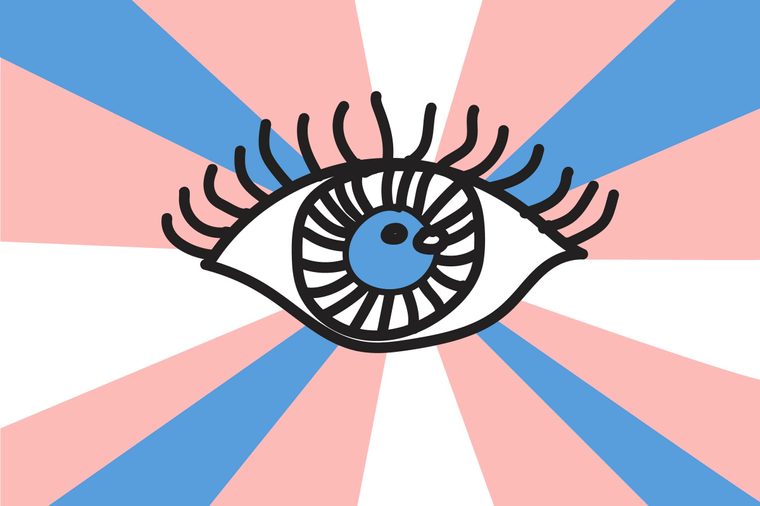
It interprets visual information
Our brains constantly take in loads of visual data, thanks to our eyes. As light passes through the cornea, the clear, dome-like surface that covers the eye, that light is bent. The iris, the colored part that changes the size of the pupil, controls how much light enters the eye, and then the lens focuses the remaining light onto the retina. The retina then converts that light into electrical signals that travel from the eye to the brain for interpretation. This process may take a paragraph to explain, but it happens in milliseconds, allowing the brain to process a whopping 600 million bits of visual information in just one minute.
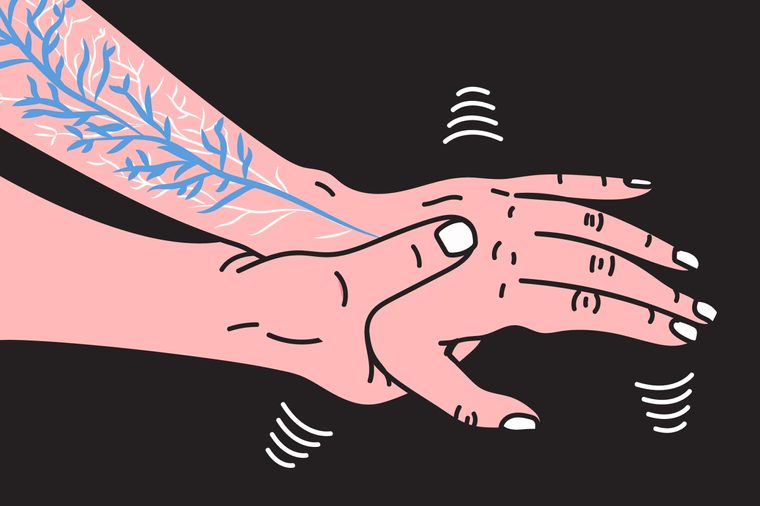
It sends nerve impulses
A single neuron can send as many as 1,000 nerve impulses every second (or 60,000 per minute). A healthy human brain has about 200 billion neurons. That adds up to 12,000,000,000,000,000 signals being sent throughout your brain.
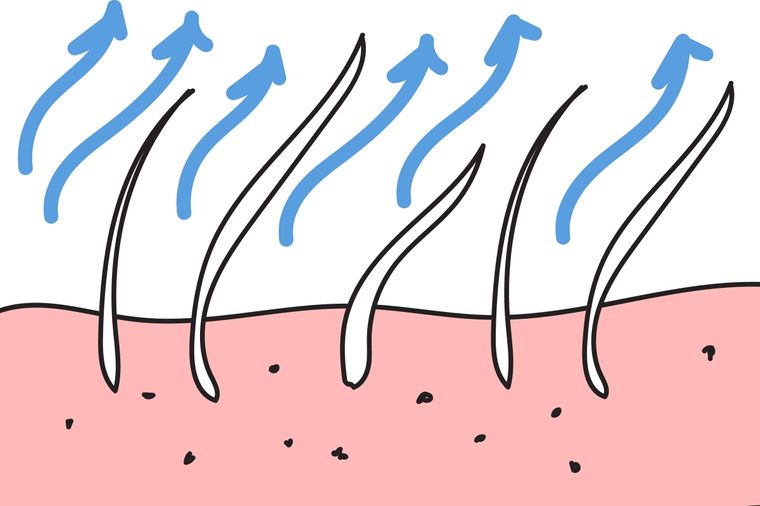
It grows hair
You have somewhere between 100,000 and 150,000 hairs on your head, and each of them grows about a half-inch per month. Collectively, your hair grows 1.1 inches in a minute.
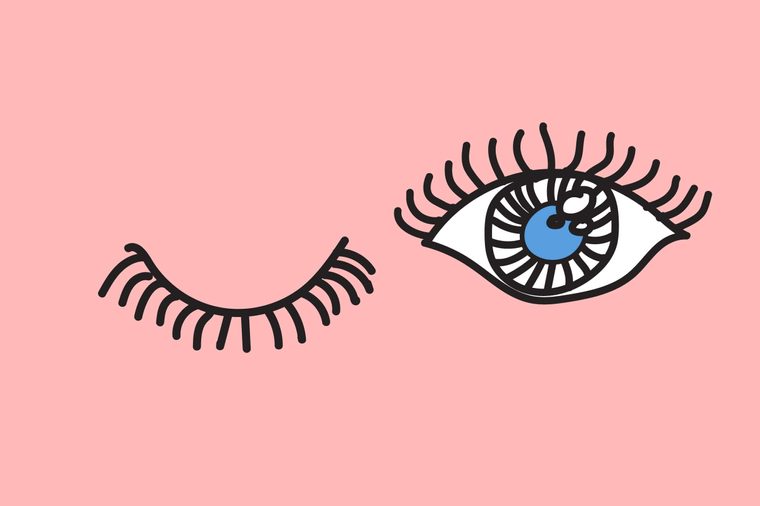
It blinks
Studies show that the average person blinks 15-20 times every minute, and that your brain may use blinking as a way to take a quick nap. Altogether, humans spend about 10 percent of their time awake with their eyes closed. Check out these body parts that are as unique as your fingerprint.
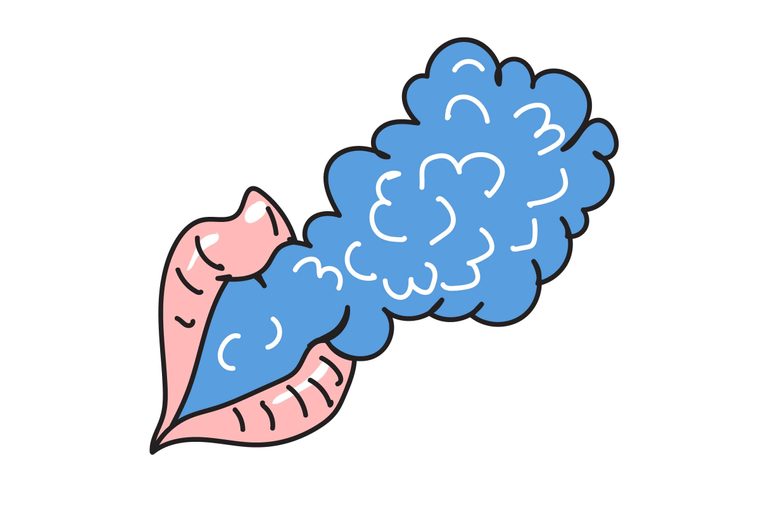
It inhales and exhales
The normal respiration rate for adults is about 12-20 breaths per minute. That pumps about 11mL of oxygen into your lungs every 60 seconds, suggests a 1997 study from the journal Anesthesiology.
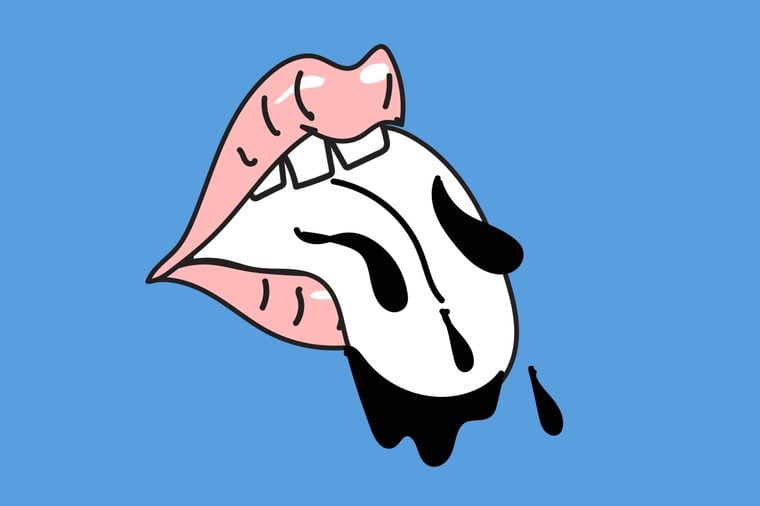
It produces saliva
The salivary glands in your mouth work constantly, producing 1-2 liters of spit every day, Live Science reports (although their output is close to zero at night). Saliva breaks down food to aid in digestion, and it keeps the mouth clean and infection-free.
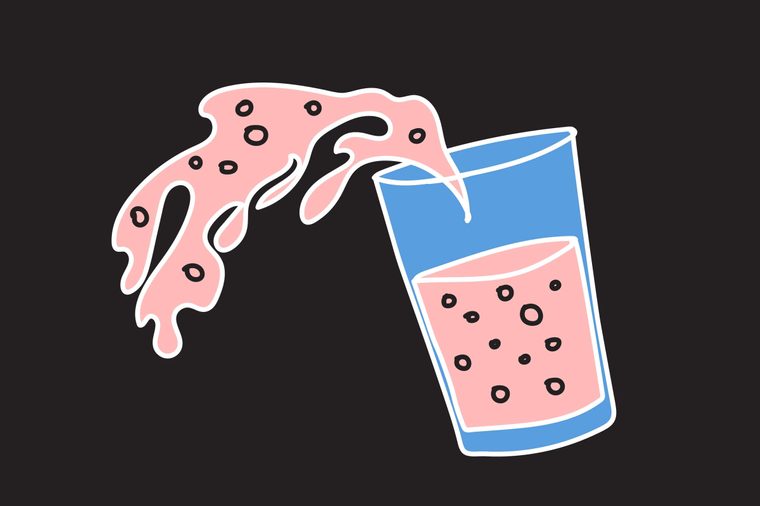
It keeps you hydrated
Over half of your body is made of water (about 55 percent for adult women and 65 percent for men) and your body is set on keeping it that way. It constantly monitors how much water you’re losing and therefore how much you need to restore. That’s why you get thirsty. In fact, one study found that the human body can trigger that thirsty sensation after losing just one percent of its total amount of water.
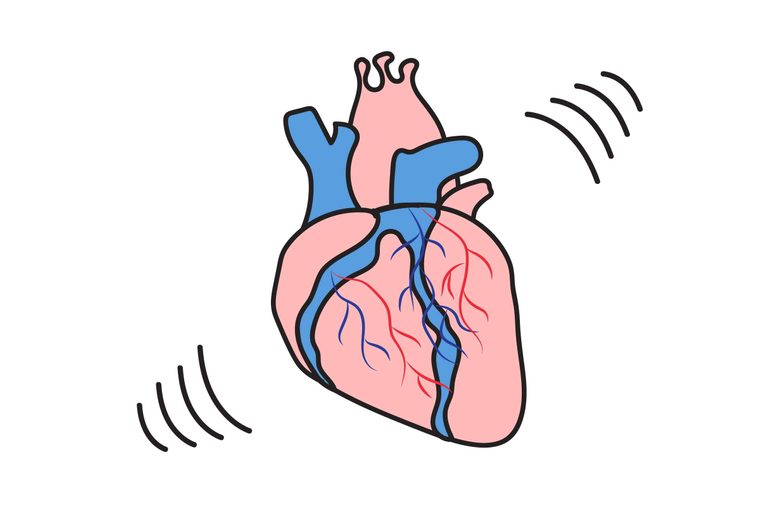
It keeps your heart beating
Heart rates can vary based on your fitness level, emotions, body size, and even body position, but a normal resting heart rate for adults falls anywhere between 60 and 100 beats per minute, according to the Mayo Clinic. The more fit you are, the lower your heart rate becomes. Elite athletes can have resting heart rates of 40 beats per minute.
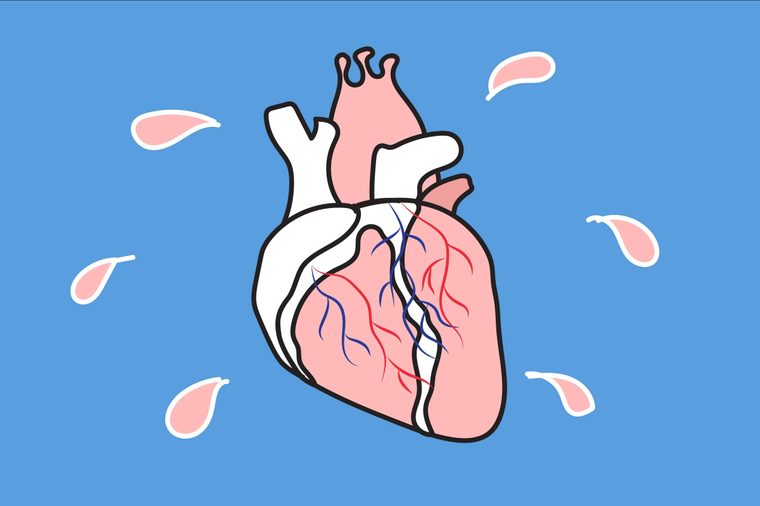
It pumps blood
Each heartbeat pumps about 2.4 ounces of blood and sends it throughout your body. If you have a resting heart rate of 80 beats per minute, your heart pumps 1.5 gallons—gallons!—of blood every 60 seconds. Ready to have your mind blown? By the end of your life, your heart will have pumped 1 million barrels of blood.
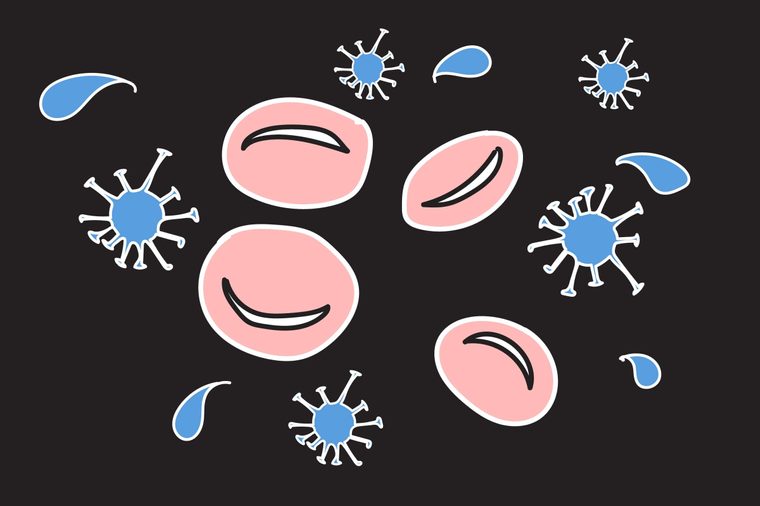
It produces millions of blood cells
That’s 120 million red blood cells, to be exact. Those cells are made inside the bone marrow and are tasked with carrying oxygen and removing carbon dioxide from the body. Considering that’s a pretty important factor in keeping us alive, it’s a good thing there are so many of them.
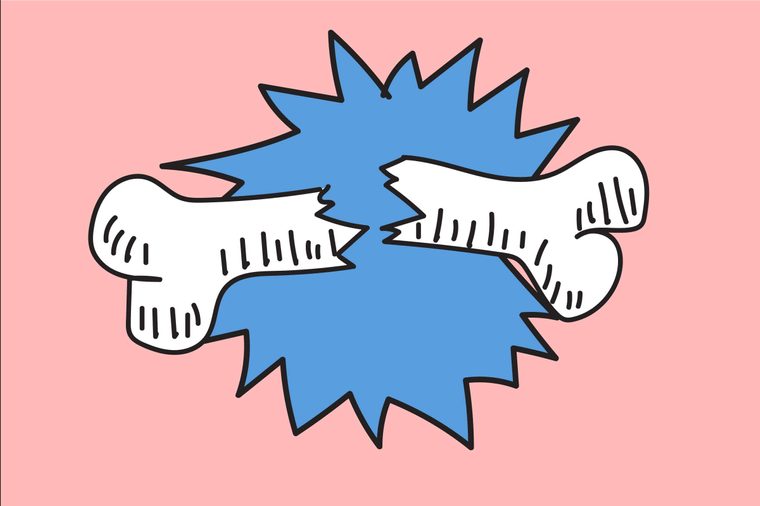
It repairs bones
Bones aren’t as stable as you might think. They are living tissues that are constantly breaking down and rebuilding as even stronger tissue. In fact, you have an almost entirely new skeleton every ten years. Without this process, you’d have to deal with a lot more broken bones. Don’t miss these weird body parts you never knew had names.
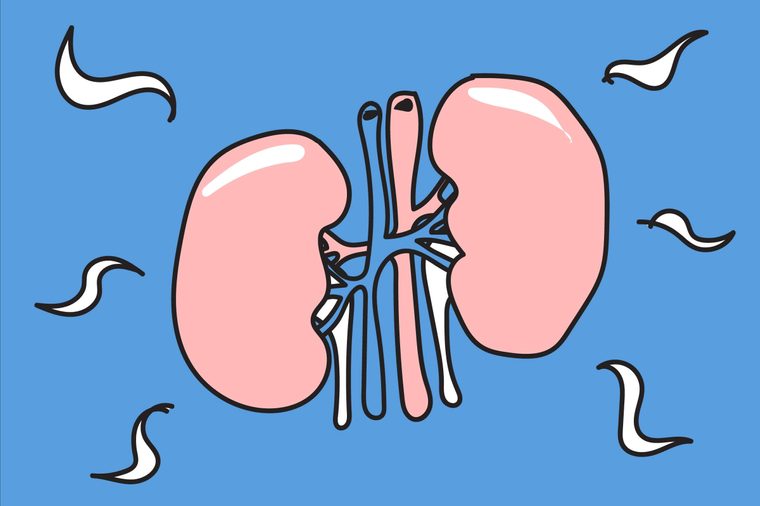
It cleans blood
Your two kidneys are also on the job 24/7. They filter all of the blood in your body, sending the clean blood back into your bloodstream and removing waste products. How much blood do they clean exactly? About 1.2 liters per minute or 180 liters per day. Considering the average adult body contains 4.5 to 5.5 liters of blood, that means all of your blood is filtered more than 30 times every single day.
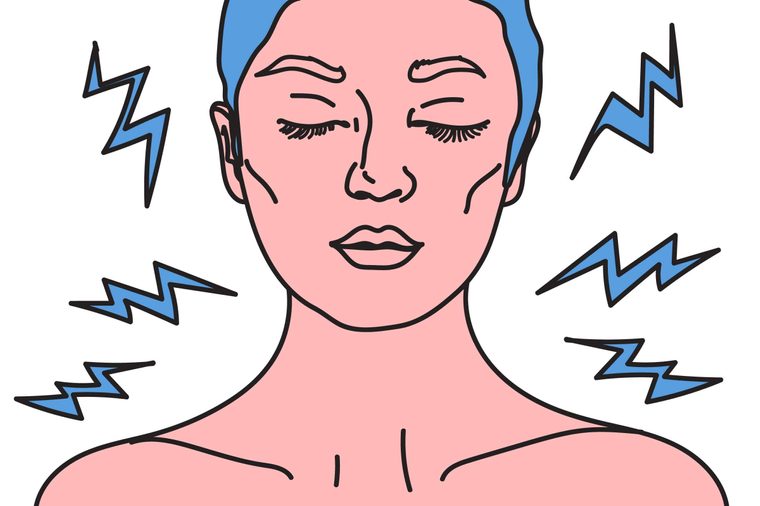
It uses energy
The type of energy we probably think about the most is the kind that turns on smartphones and powers shows on Netflix. But the human body also creates and exerts energy with food as its source. One calorie from food equals 4,200 joules of energy. A person who consumes 2,000 calories a day uses about 97.2 joules of energy per second, or 5,832 joules per minute. That person could power a bright light bulb with only his or her body. Make sure you know these 50 myths about the human body that could seriously damage your health.
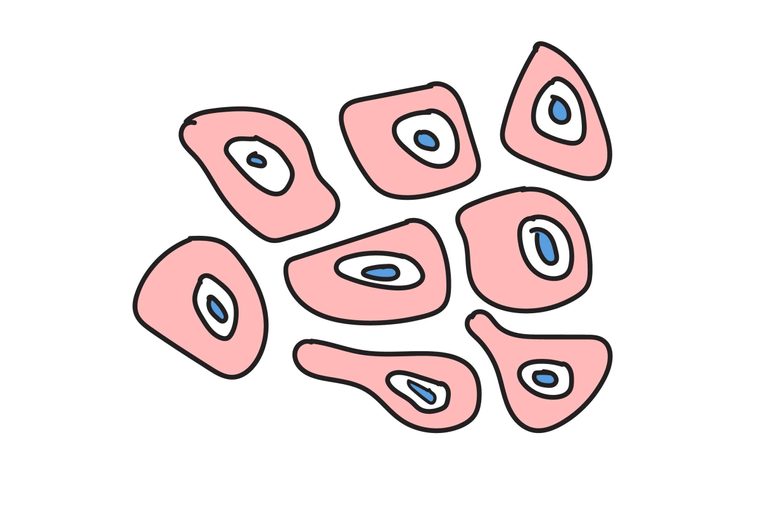
It sheds skin cells
You may not notice it, but you shed 30,000 to 50,000 skin cells every minute. (Yes, they eventually get replaced; otherwise, we’d be walking skeletons.) That adds up to about 105 pounds of skin by the end of your life.
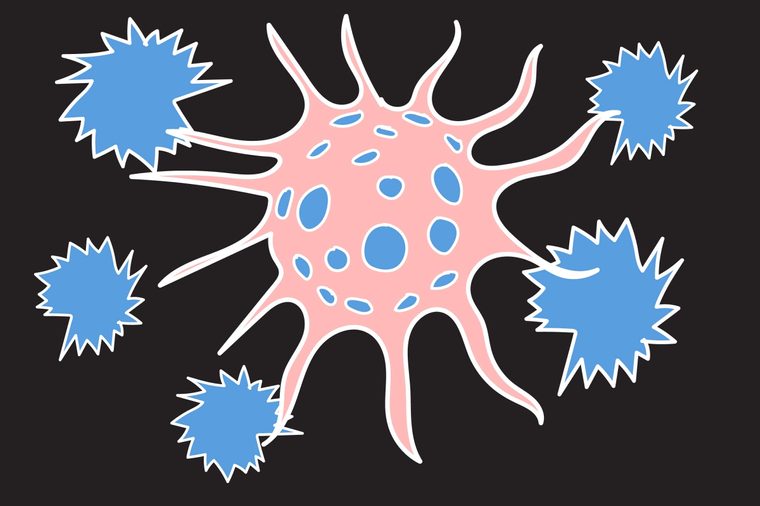
It prevents cancer
It’s estimated that each cell in the human body can endure tens of thousands of DNA lesions every day. This sort of damage can alter a cell’s DNA and program it to destroy body tissue, resulting in the disease we know as cancer. At that rate, it would seem like everyone in the world should have some sort of cancer. Luckily, the first line of defense against this disease is actually your own body. Enzymes are constantly checking DNA strands for signs of cancer and taking out and replacing damaged parts. As you’re reading this, your body is saving you from a potentially fatal disease. How incredible is that? Don’t miss these 35 health secrets your body is trying to tell you.